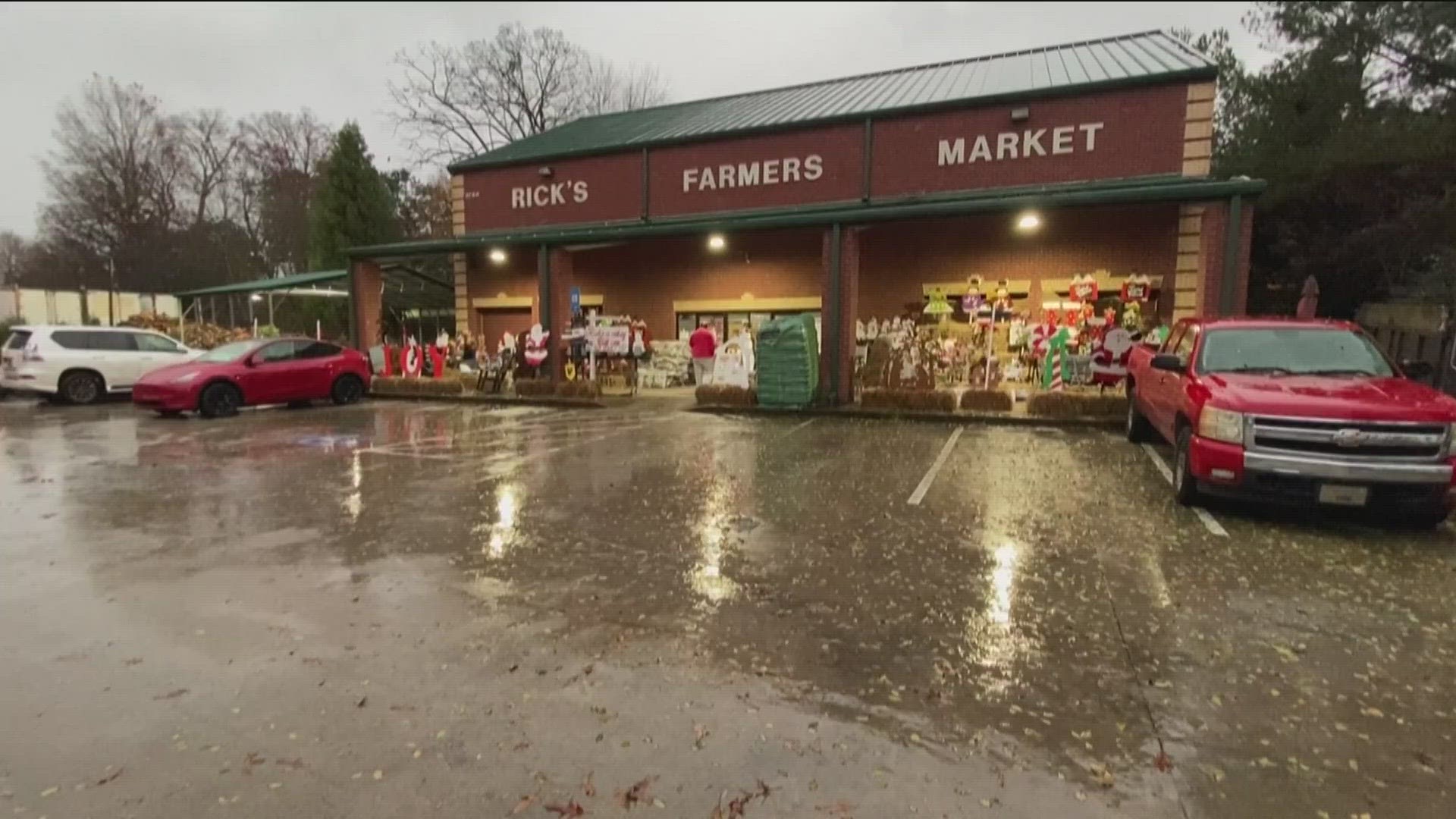MARIETTA, Ga. — The rains this past weekend were welcome, but they will not end Georgia’s drought.
The drought is so severe, now, that counties across north Georgia have been declared federal agriculture disaster areas.
Rick Champion, owner of Rick’s Farmers Market in Marietta, expects that the combination of the drought plus stubborn inflation could potentially combine into a one-two punch that could keep food prices high well into 2024.
“It’s going to drive the price higher and higher,” Champion said Sunday.
He said the forecast is as bad as he’s seen in his nearly fifty years in business.
Farmers in north Georgia are already expecting smaller harvests in 2024 because of extreme and severe drought, which could push retail prices up for the foods from Georgia that do make it to market, as well as for the foods shipped in from outside of Georgia.
On top of that, existing food-price inflation is projected to stay up, and not decrease, next year.
“I would say it’s probably a double whammy,” Champion said.
The U.S. Drought Monitor showed that as of Dec. 7, there was "extreme drought" in far north Georgia, and "severe drought" in adjacent counties, including parts of Haralson, Polk, Paulding, Cobb, Fulton, Gwinnett, Barrow, and more.
More than a dozen north Georgia counties, so far, are already declared federal agriculture disaster areas.
Farmers in those areas can apply for emergency loans to make up for some of their losses next year.
They need rain now. And they are not getting enough.
“They need the water to bring the crops up,” Champion said. “And they need water in the wintertime to fill up their ponds to be able to irrigate their crops. If they don't get the rains in the wintertime to fill up their stock ponds for the water, they won't be able to irrigate the crops after they plant.”
Champion said farmers are also struggling to stay ahead of their own increasing costs of doing business, such as paying inflated prices for fertilizers and diesel fuel.
“They don’t know how much longer they can stay in business,” he said, “paying the kind of prices for everything they’re paying for.”
Grocery shoppers like Alison Ayotte are bracing for even higher food prices in the next several months.
“I do anticipate an increase,” she said, expressing concern about farmers surviving, too.
“Yes, support our farmers. We need them. My heart goes out to those that are struggling.”
The drought now extends across the southern U.S. and other parts of the country, so there will likely be an even greater demand next year for food that’s harvested outside the drought zones.

